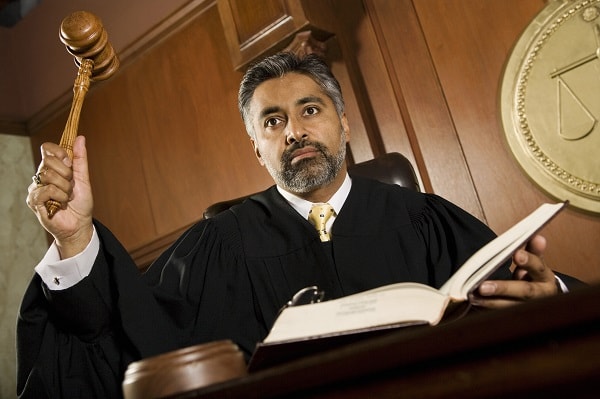What Happens If I Think the Judge in My Personal Injury Lawsuit is Biased Against Me?
Posted on - Wednesday, October 19, 2016 under Personal Injury
Even if you’re just a casual sports fan, you’ve likely seen your share of “bad calls” – a basketball referee calling a phantom foul, a baseball umpire calling a pitch that was around the batter’s ankles a strike, or a football ref missing a blatant case of pass interference. Frustrating? Yes. Wrong decision? Maybe so. A case of deliberate bias favoring one team over the other? Highly unlikely, though it may be tempting to believe so in the heat of the moment.
Folks sometimes think of judges as umpires whose job it is to simply call “balls and strikes.” This of course means that judges, being human, sometimes make bad calls. That’s why our court system allows for the review of such calls by courts of appeal. 99 times out 100, an appeal of a judge’s decisions will be based on arguments that the judge misapplied the law; that he or she made a mistake that warrants a reversal of their decision or ruling.
It is exceedingly rare for a litigant to assert much less prove that a judge’s allegedly incorrect decision was based on the judge’s real or imagined bias against that litigant (the claims of a certain presidential candidate aside).
But what happens in a personal injury lawsuit if the litigant and especially the litigant’s lawyer does believe and can prove that the judge is biased and is making decisions accordingly?
As a preliminary matter, it should be noted that judges are assigned to cases randomly; as the Uniform Rules of the Superior Courts of the State of Georgia note, “the assignment system is designed to prevent any persons choosing the judge to whom an action is to be assigned; all persons are directed to refrain from attempting to affect such assignment in any way. Also, judges have an obligation to recuse themselves from a case under circumstances that would call their impartiality into questions, such as a relationship or financial interest in one of the parties.
But once a judge has been assigned and a case has proceeded beyond its earliest stages, requesting a change of judge on the basis of alleged bias requires a high level of proof in order to demonstrate bias or a lack of impartiality. Being on the receiving end of multiple adverse decisions in and of itself will not be sufficient. Your personal injury attorney will be able to advise you of his professional opinion as to whether a judge is biased such that appropriate steps should be taken to address such bias, or whether the judge was simply wrong.
At The Parian Law Firm in metro Atlanta, Georgia, we represent injury victims exclusively and are committed to getting justice and compensation for our clients. Please contact us at (770) 727-5550 or chat live online with a member of our staff today.








